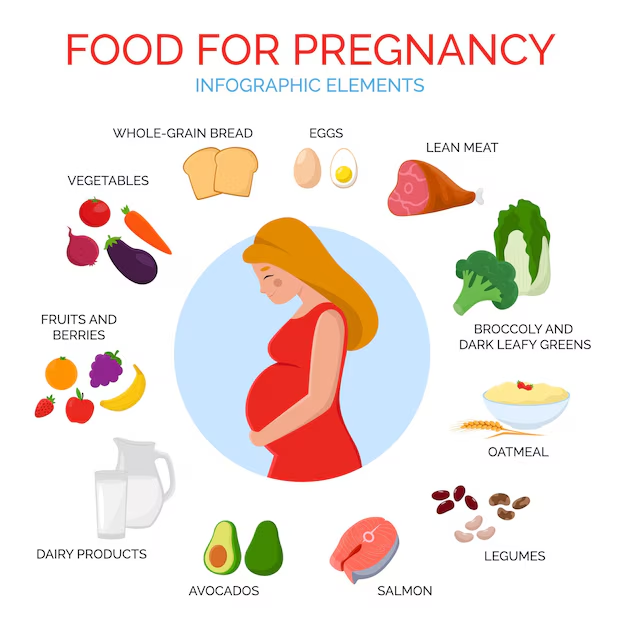Dr. Dipti Dokrimare | Dokrimare Multispeciality Hospital
What Care to be Taken During Pregnancy??
Pregnancy is one of the most beautiful and transformative phases in a woman’s life. It is a time filled with anticipation, excitement, and naturally, some concerns. As an expecting mother, taking the right steps towards your health and well-being is essential — not just for your own sake, but also for your baby’s development. At Dokrimare Multispeciality Hospital, we understand the importance of comprehensive prenatal care. In this guide, Dr. Dipti Dokrimare outlines everything you need to know about taking care of yourself during pregnancy — from nutrition and physical activity to mental wellness and routine doctor visits.

1. Understanding Pregnancy: The Three Trimesters
Each trimester of pregnancy brings its own joys, challenges, and health requirements.
First Trimester (Week 1–12):
- Hormonal changes are at their peak.
- Morning sickness, fatigue, and emotional fluctuations are common.
- The baby’s major organs and systems begin forming.
Second Trimester (Week 13–26):
- Most women feel more energetic.
- Physical changes like a growing belly become more visible.
- Important developmental milestones for the baby take place.
Third Trimester (Week 27–40):
- The baby gains weight rapidly.
- Discomforts like back pain, heartburn, and sleep issues may increase.
- Preparation for labor and delivery begins.
2. Nutrition: Eating for Two (Wisely)

Nutrition during pregnancy is not about eating more, but eating right.
Key Nutrients and Why They Matter
- Folic Acid: Prevents neural tube defects. Take at least 400–600 mcg daily.
- Iron: Supports increased blood volume and prevents anemia.
- Calcium & Vitamin D: Essential for the development of strong bones and teeth in your baby.
- Protein: Helps in the growth of fetal tissues, including the brain.
- Omega-3 Fatty Acids (especially DHA): Supports brain and eye development.
- Fiber: Prevents constipation and maintains gut health.
Sample Daily Meal Plan

- Breakfast: Whole grain toast + boiled egg + fruit smoothie with spinach
- Mid-morning Snack: Nuts + fresh seasonal fruit
- Lunch: Roti or brown rice + dal + cooked vegetables + salad
- Evening Snack: Yogurt or buttermilk + handful of makhana
- Dinner: Grilled paneer/tofu or chicken + quinoa or khichdi + sautéed veggies
Foods to Avoid
- Raw or undercooked meat, eggs, and fish
- Unpasteurized dairy products
- Excess caffeine
- Alcohol and tobacco
- Junk food, sugary sodas, and processed snacks
3. Hydration and Fluids

Pregnant women should drink at least 8–10 glasses of water daily to support increased blood volume and prevent dehydration, swelling, and urinary infections. Coconut water, lemon water, and homemade soups are great additions.
4. Physical Activity and Exercise
Exercise during pregnancy offers numerous benefits:
- Reduces backaches, bloating, and swelling
- Improves mood and energy levels
- Promotes better sleep
- Strengthens muscles used during labor and delivery

Safe Activities Include:
- Walking
- Prenatal yoga
- Light stretching
- Pelvic floor exercises
- Swimming (in the second trimester, after doctor’s approval)
Note: Always consult your obstetrician before starting any exercise routine.

5. Routine Doctor Visits
Regular prenatal check-ups are critical for monitoring the health of both mother and baby.
Suggested Schedule:
- Every 4 weeks during the first 28 weeks
- Every 2 weeks until 36 weeks
- Weekly from 36 weeks until delivery

What to Expect at Visits:
- Weight and blood pressure checks
- Fetal heartbeat monitoring
- Urine tests
- Ultrasounds to track baby’s growth and position
- Blood tests for anemia, gestational diabetes, and infections
- Vaccinations like Tdap and flu shot
Early detection of complications such as preeclampsia, gestational diabetes, and anemia can significantly improve outcomes for mother and baby.
6. Sleep and Rest
Pregnant women need 7–9 hours of quality sleep each night.
Tips for Better Sleep:
- Use a pregnancy pillow for back and belly support
- Sleep on your left side to improve blood flow
- Avoid caffeine late in the day
- Keep a consistent sleep schedule
- Try deep breathing or meditation before bed
Daytime naps (20–30 minutes) can also help reduce fatigue, especially in the first and third trimesters.
7. Emotional and Mental Well-being
Pregnancy can bring emotional ups and downs due to hormonal changes, anxiety, and body image issues.
What Can Help:
- Talk openly with your partner and family
- Join prenatal support groups
- Practice mindfulness and deep breathing
- Get enough rest
- Seek professional help if feelings of sadness or anxiety persist
Never hesitate to speak with a doctor if you’re struggling emotionally — maternal mental health is just as important as physical health.
8. Common Discomforts and Their Remedies
Morning Sickness:
- Eat small, frequent meals
- Keep dry snacks like crackers near your bed
- Sip ginger tea or lemon water
Heartburn:
- Avoid spicy and fried foods
- Eat slowly and avoid lying down right after meals
Constipation:
- Increase fiber intake
- Stay hydrated
- Exercise regularly
Swelling:
- Elevate your feet
- Avoid standing for too long
- Wear comfortable shoes
9. Hygiene and Lifestyle Modifications
- Take daily showers and maintain genital hygiene
- Avoid public pools or hot tubs
- Wear comfortable, loose-fitting cotton clothes
- Minimize screen time, especially before bed
- Maintain a clean, stress-free environment
10. Avoiding Harmful Substances

- Alcohol and Tobacco: Strictly avoid as they increase the risk of miscarriage, low birth weight, and developmental issues
- Medications: Take only those prescribed by your doctor. Some over-the-counter drugs are not safe during pregnancy
- Toxic Substances: Avoid exposure to pesticides, strong chemicals, and certain beauty treatments (like hair dyes and chemical peels)
11. Preparing for Delivery and Postpartum

As you near your due date:
- Pack a hospital bag (with clothes, baby essentials, documents, etc.)
- Finalize your birthing plan with your doctor
- Take antenatal classes if possible
- Learn about breastfeeding and newborn care
- Prepare your home for the baby’s arrival
Postpartum Planning:
- Arrange for help with chores and meals
- Plan for adequate rest and recovery
- Be aware of signs of postpartum depression
- Schedule postnatal check-ups for yourself and your baby
12. Partner Involvement and Family Support
The role of the partner and family members is crucial. Encourage them to:
- Attend doctor appointments with you
- Help with daily tasks and stress management
- Educate themselves on newborn care
- Be emotionally supportive and understanding
Conclusion: A Healthy Pregnancy, A Healthy Future
Pregnancy care is not just a checklist — it is a lifestyle. Eating right, staying active, attending your appointments, and prioritizing mental well-being all contribute to a healthy pregnancy and a strong foundation for your child’s life.
At Dokrimare Multispeciality Hospital, we’re committed to supporting you every step of the way. Dr. Dipti Dokrimare and our experienced team provide expert prenatal and maternity care in a safe, comforting environment.
Have questions or need personalized guidance? Book your prenatal consultation with Dr. Dipti Dokrimare today.
📞 Call us at: [+919527282994 I 07184256063]
🌐 Visit: www.dokrimarehospital.com
📍 Address: Dokrimare Multispeciality Hospital, [Rajiv Gandhi Square, Bhandara.]

